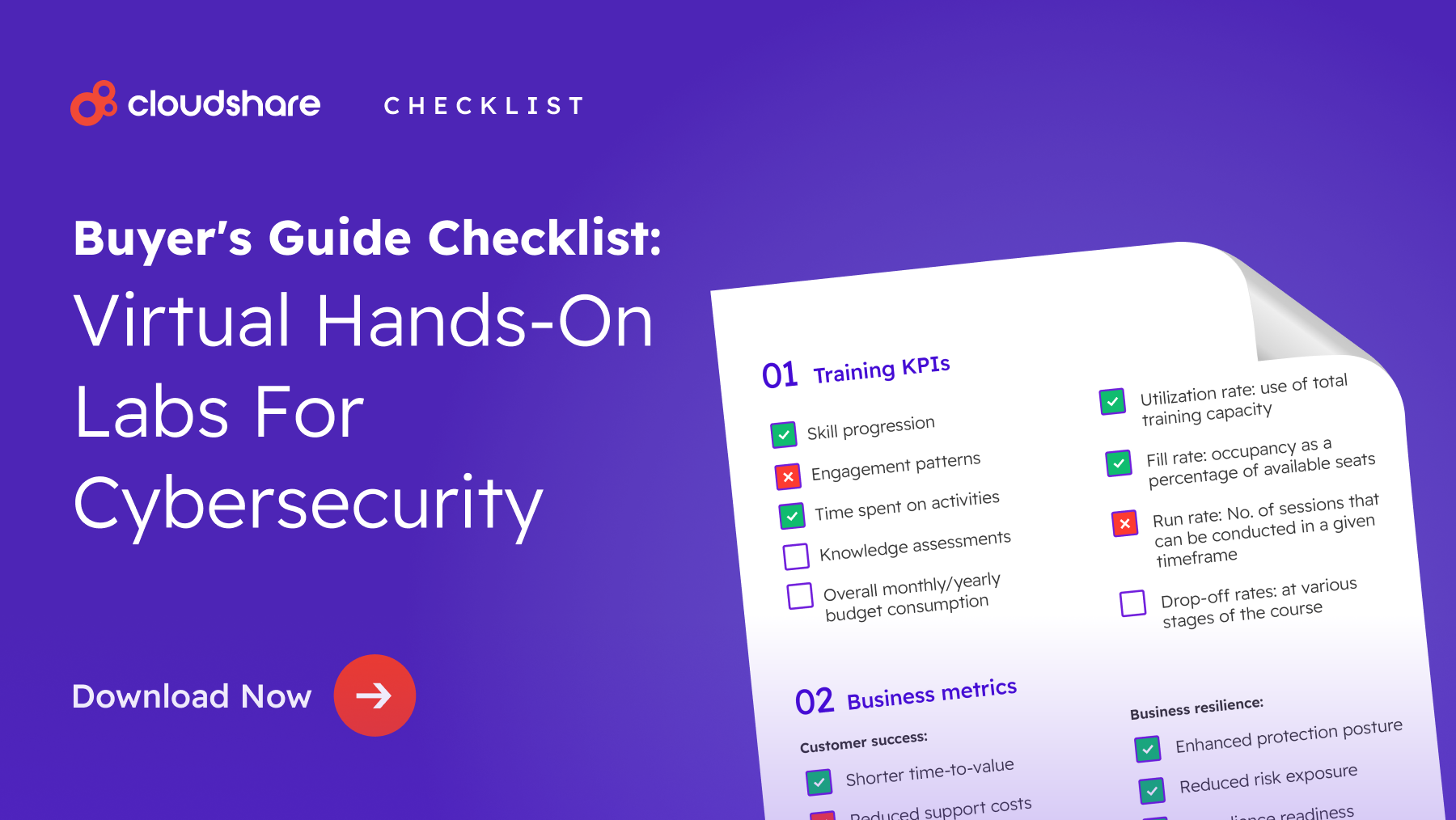Glossary
Cloud Training Solution
Cloud computing is more than just a buzzword. Whether you’ve noticed or not, it’s becoming a regular part of workflows everywhere. That’s why investments in cloud training have risen in recent years. Why should you care about cloud computing, and is it important enough to invest in online virtual machines to train your staff with it?
On this page, you will learn:
- How does training through cloud computing work?
- Why choose a cloud training solution?
- What are the different types of clouds?
- Examples of providers
How Does Training Through Cloud Computing Work?
Cloud training systems work by hosting their computing resources online. All the processing power, storage, and networking are handled on an off-site server as the application is sent to the end-user. While cloud computing, in general, has applications in virtual machines, databases, and mass storage, the benefit it offers for training is the same: the content is accessible from any device with an Internet connection.
A cloud training solution also facilitates collaboration among participants and instructors. Much like how Facebook and email enable online communication with personal friends, cloud infrastructure gives you multiple ways to explain your ideas to others, including text and video chat.
Another functionality of cloud training is the ability to work with data efficiently. Cloud storage lets you store and backup course material safely. Instructors can also analyze performance metrics of the class through a cloud-based service.
Why Choose Cloud Training Solution?
Businesses see the benefits of cloud training quickly after adoption. While there are drawbacks to the new solution, the advantages are well worth the effort.
- Efficiency. Off-loading computing resources to external servers results in more cost-effective operation and less downtime.
- Accessibility. You don’t need to manage physical meetings to provide training. Users can access materials from any location at any time as long as there is an Internet connection.
- Ease of use. Since the service provider handles all the installation, maintenance, and updates, all you need to do is get the most out of your online class.
The only challenges usually involve your choice of a cloud provider. Not all vendors have the same features and guarantees. Take the time to make a decision, as you are giving up a certain degree of control over your business to this company.
Are There Different Types of Clouds?
Cloud computing comes in three different flavors depending on the needs of the organization. A public cloud is owned by a third-party provider and is accessible by any user over the Internet. A private cloud, by contrast, is specific to a single business. It may be running on-site or through a third-party. Some clouds are hybrid, meaning they combine features of both the above options.
If you’re going for a third-party solution, there are further ways to classify these services:
- Infrastructure as a Service (IaaS). You rent the IT infrastructure (virtual machines, networks, etc.) from the provider directly. You only have to pay for what you use.
- Platform as a Service (PaaS). Popular for app development, here you can use an on-demand environment for creating programs.
- Software as a Service (SaaS). Just as it sounds, this option lets you deliver software online. The service provider handles all the updates and maintenance.
- Functions as a Service (FaaS). In some cases, you want to run code separately to help you develop applications. A serverless feature will do that.
Think about the needs and preferences of your particular use case when deciding on your ideal service provider.
What Are Some Examples of Providers?
Many businesses offer platforms for cloud training and other applications. The three that most people are familiar with include:
- Google Cloud Training: Google offers a large variety of cloud services, all of which integrate well with each other. If you need a storage or data analytics platform, there’s a high chance Google has what you need.
- Azure Cloud Training: Microsoft owns a public cloud computing service that includes multiple features like analytics, storage, and networking. Like Google, they have strong integrations in the cloud.
- AWS Cloud Training: Amazon Web Services specializes in content delivery and database storage. It was one of the first major cloud providers on the market.
Cloud computing services are the future of corporate training thanks to their improved efficiency, ease of use, and security.



